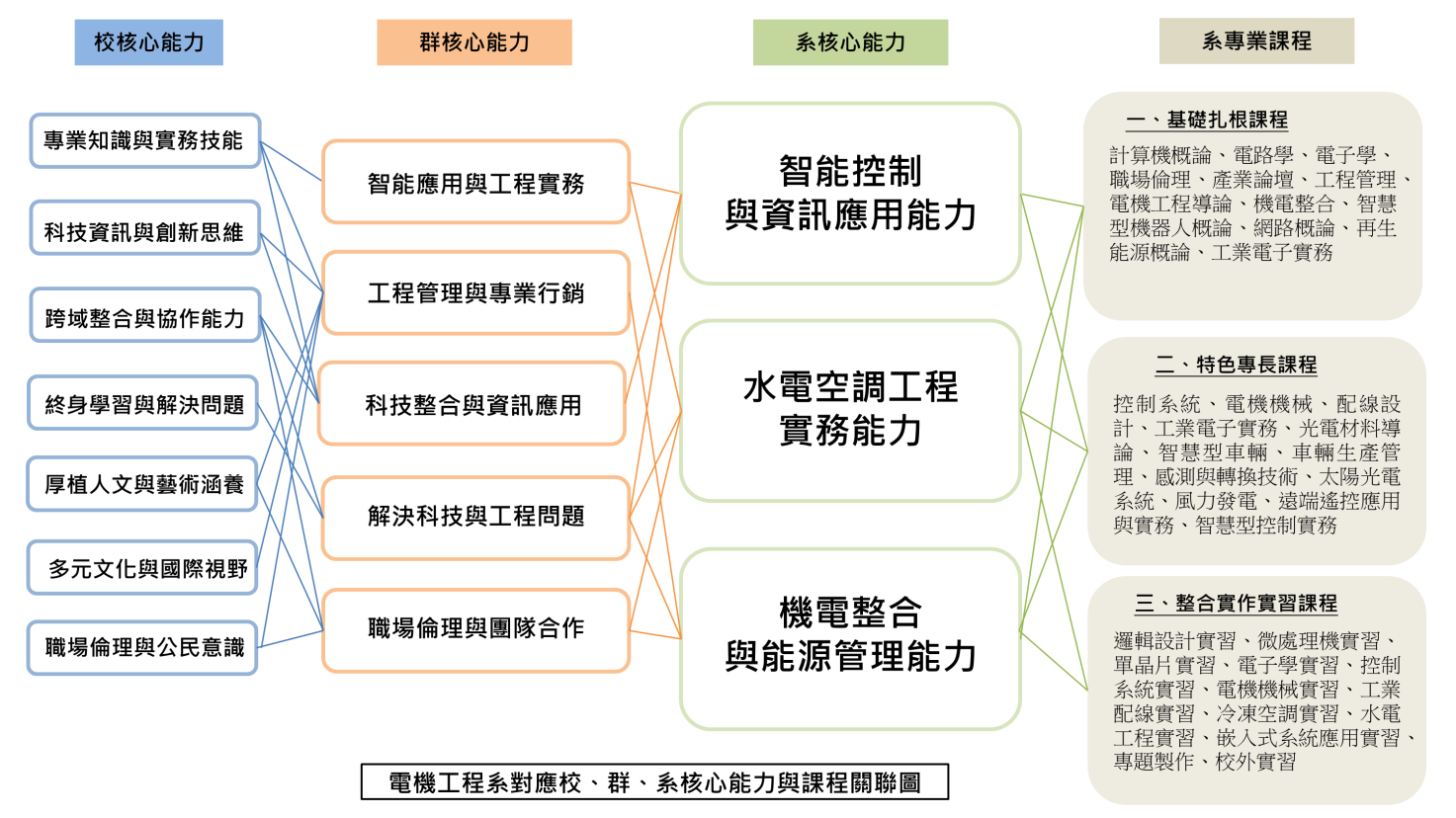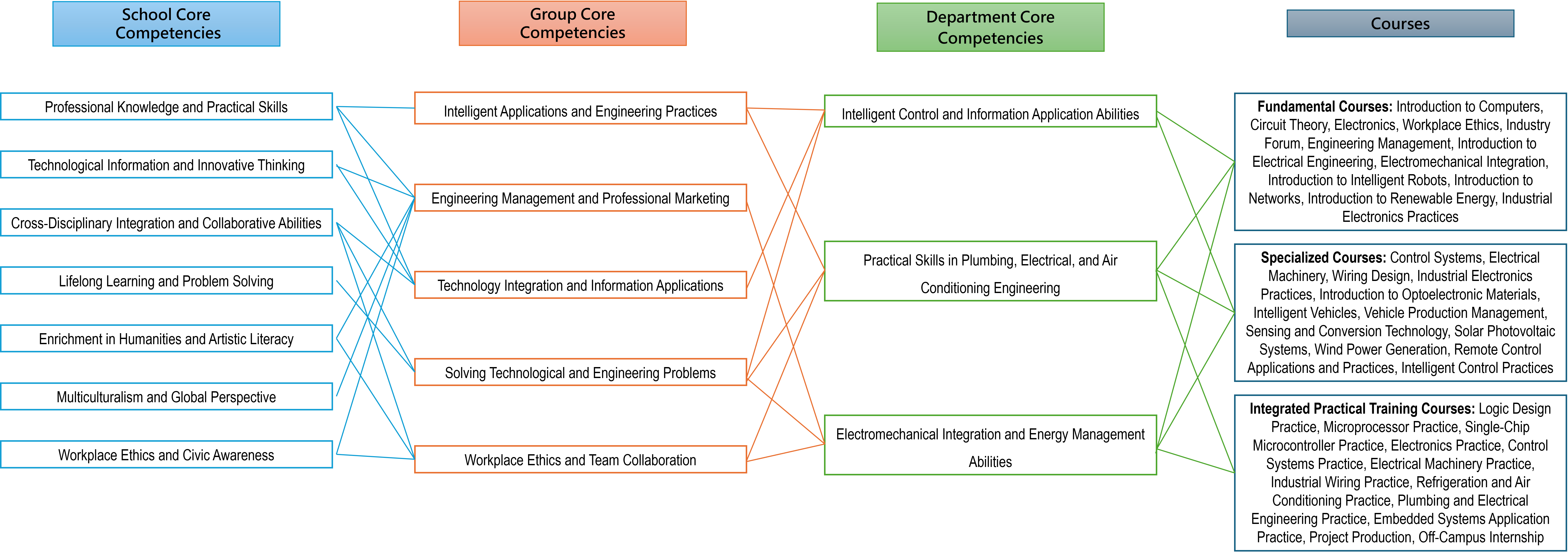課程規劃
課程規劃發展架構
-
基礎紮根課程:包含學院必修課程與電機專業知識之基礎課程,設有職場倫理、產業論壇、工程管理、計算機概論、電路學、電子學、電機工程導論、機電整合、智慧型機器人概論、網路概論、再生能源概論、工業電子實務等課程,藉以強化學生之基礎專業能力,後續得以根據興趣適切選擇未來學習的方向。
-
特色專長課程:依據核心能力著重特色發展,培養學生專業技能以符合產業需求,規劃課程有控制系統、電機機械、配線設計、工業電子實務、光電材料導論、智慧型車輛、車輛生產管理、感測與轉換技術、太陽光電系統、風力發電、遠端遙控應用與實務、智慧型控制實務等。
-
整合實作實習課程:培養學生具備實作力、創新力及就業力之實務能力,訓練學生取得國家或國際專業技能證照,並由分組合作培養團隊精神,以符合產業需求,達到畢業即就業的終極目標。規劃課程有邏輯設計實習、微處理機實習、單晶片實習、電子學實習、控制系統實習、電機機械實習、工業配線實習、冷凍空調實習、水電工程實習、嵌入式系統應用實習、專題製作、校外實習。

Course Planning
Course Planning and Development Structure
- Foundation Course: This includes required courses for the college and foundational courses in electrical engineering. The courses offered are Professional Ethics, Industry Forum, Engineering Management, Introduction to Computers, Circuit Theory, Electronics, Introduction to Electrical Engineering, Mechatronics Integration, Introduction to Intelligent Robots, Introduction to Networking, Introduction to Renewable Energy, and Industrial Electronics Practices. These courses aim to strengthen students’ foundational professional abilities, enabling them to choose their future learning directions based on their interests.
- Specialized Courses: Based on core competencies and focused development, these courses aim to cultivate students’ professional skills to meet industry demands. The curriculum includes Control Systems, Electrical Machinery, Wiring Design, Industrial Electronics Practices, Introduction to Optoelectronic Materials, Intelligent Vehicles, Vehicle Production Management, Sensing and Conversion Technology, Solar Photovoltaic Systems, Wind Power Generation, Remote Control Applications and Practices, and Intelligent Control Practices.
- Integrated Practical Training Courses: These courses aim to cultivate students’ practical abilities, innovation, and employability. Students are trained to obtain national or international professional skill certifications. Group collaboration is emphasized to foster teamwork, aligning with industry needs and achieving the ultimate goal of immediate employment upon graduation. The curriculum includes Logic Design Practice, Microprocessor Practice, Microcontroller Practice, Electronics Practice, Control Systems Practice, Electrical Machinery Practice, Industrial Wiring Practice, Refrigeration and Air Conditioning Practice, Hydroelectric Engineering Practice, Embedded Systems Application Practice, Capstone Project, and Internship.
